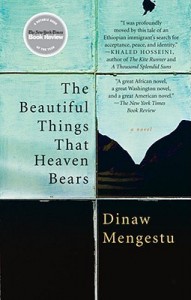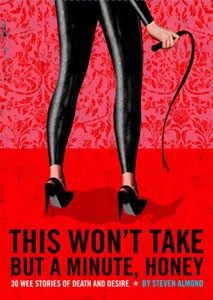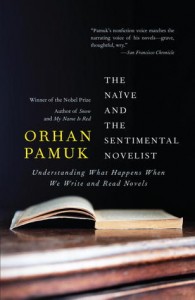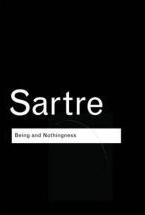 As 2012 closes and 2013 dawns, it seemed a good time to enter the fray on a popular discussion: will e-books be the death of paper books? I’m a confirmed Luddite (no dedicated e-reader yet, though I do finally have a smart phone) and I love my paper books, but even I have to admit e-books present exciting new opportunities. In the right hands, e-books have come a long way from the poorly-formatted and typo-ridden uploads we came to expect in the early Kindle and Nook days.
As 2012 closes and 2013 dawns, it seemed a good time to enter the fray on a popular discussion: will e-books be the death of paper books? I’m a confirmed Luddite (no dedicated e-reader yet, though I do finally have a smart phone) and I love my paper books, but even I have to admit e-books present exciting new opportunities. In the right hands, e-books have come a long way from the poorly-formatted and typo-ridden uploads we came to expect in the early Kindle and Nook days.
One of the most exciting things I see writers exploring on paper these days (it’s not actually new, but I’m just now discovering it) is hybrid forms. Writers like Michael Ondaatje and W.G. Sebald blend poetry, prose, news clippings, images and more. These narratives come alive in new and interesting ways as the writers and readers fill in gaps between these forms to create a different kind of story.
E-books have infinite potential to take hybrid forms to a new level.
Enhanced E-Books as Illuminations
Melville House has been experimenting with HybridBooks. These e-books contain additional materials from maps to curated text that are meant to illuminate the stories they accompany. This series has been well-received and I’m intrigued by the ability to immediately follow intertextual linkages (without the trudge to the bookstore). And I’ve always loved the maps inside the covers of books, so I suppose this is an extension of that and I can definitely see applications.
Reinventing Publishing with New Media: Augmented Reality Books
My husband received The Art of Journey for Christmas. Using an app, his smartphone turns this illustrated companion to the PlayStation game from a paper book (art by Matthew Nava) to a four-dimensional world as characters literally fly off the page accompanied by a haunting soundtrack.
Though this “augmented reality” only works for a few pages in the book (I imagine the animation is insanely expensive), daqri, the company behind the technology has already been using it to take scientists inside the protein shell of a virus. The possibilities for turning a book into a high-tech immersive entertainment experience are endless.
Will Paper Books Still Exist?
Paper books will always exist in my house as long as I can get them. Sure, there are times when it’s great to be able to click through to understand a reference I hadn’t quite gotten or to see an illustration of what someone else envisioned a creature to look like (this would have been very helpful to me with Lovecraft). But the beauty of black ink on white paper is that I get to participate in the experience of creating the stories and images. If I had a clickable Les Misérables, I would never have spent hours in a British Consulate library looking up new words in the full-length OED and discovering how much I love language and etymology.
I have to admit, though, that for the right project, HybridBooks and augmented reality are very intriguing. Would either of these options enhance the manuscript you’re working on? I’d love to know more. And if you know about other new ways people are re-imagining the book, please share.
 One of the things I like most about a book is the possibility of completely inhabiting a new culture or rediscovering a familiar one. Dinaw Mengestu gave me that gift this morning in the novel The Beautiful Things That Heaven Bears by allowing me to explore DC and Addis Ababa through the eyes of his narrator, Sepha.
One of the things I like most about a book is the possibility of completely inhabiting a new culture or rediscovering a familiar one. Dinaw Mengestu gave me that gift this morning in the novel The Beautiful Things That Heaven Bears by allowing me to explore DC and Addis Ababa through the eyes of his narrator, Sepha. I finally started reading the book this week because I had 20 books left to read to meet my 2012 reading goals and I thought I could power through the 70 pages and move on to the next thing. I was so completely wrong.
I finally started reading the book this week because I had 20 books left to read to meet my 2012 reading goals and I thought I could power through the 70 pages and move on to the next thing. I was so completely wrong.
 Though I’m obsessed with philosophy, we have a tortured relationship. The whole concept of discussing an idea and its implications to death is pure heaven for me. But I like to be right (i.e. not WRONG) and I usually feel inadequately prepared to properly discuss important ideas. In reading Being and Nothingness by Jean-Paul Sartre, there were ideas I wanted to share with friends, but I felt like I couldn’t without going to Wikipedia and determining first that I hadn’t misread the book.
Though I’m obsessed with philosophy, we have a tortured relationship. The whole concept of discussing an idea and its implications to death is pure heaven for me. But I like to be right (i.e. not WRONG) and I usually feel inadequately prepared to properly discuss important ideas. In reading Being and Nothingness by Jean-Paul Sartre, there were ideas I wanted to share with friends, but I felt like I couldn’t without going to Wikipedia and determining first that I hadn’t misread the book.